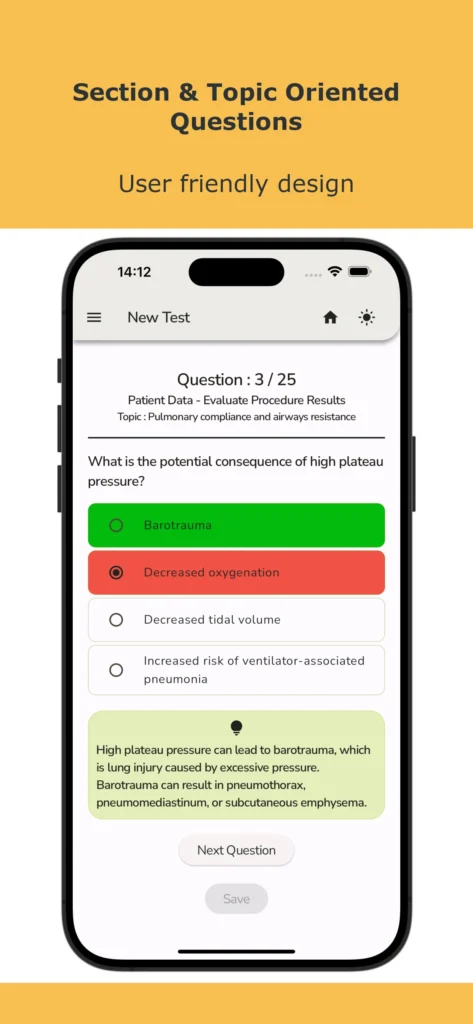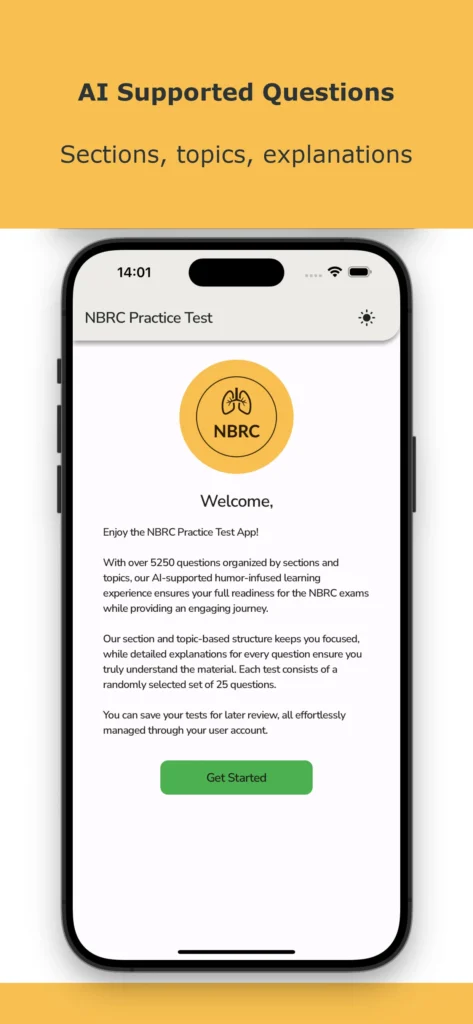Introduction to NBRC Sims Practice
Welcome to the world of NBRC Sims Practice! If you’re preparing for the NBRC Clinical Sims exam, you’ve come to the right place. In this section, we’ll provide you with an overview of what NBRC Sims Practice is all about and share some valuable tips and strategies to help you master it.
Before we dive into the details, let’s quickly understand what NBRC Sims Practice is. The National Board for Respiratory Care (NBRC) is responsible for administering the Clinical Sims exam, which is a crucial step towards becoming a certified respiratory therapist. The exam consists of various simulated patient scenarios that test your knowledge, skills, and decision-making abilities in a real-life clinical setting.
Now, let’s talk about the importance of NBRC Sims Practice. The Clinical Sims exam is challenging, and proper preparation is essential to ensure success. NBRC Sims Practice allows you to familiarize yourself with the exam format, practice your clinical reasoning skills, and identify areas where you need improvement.
Here are some key tips and strategies to help you make the most out of your NBRC Sims Practice:
1. Understand the Exam Format
Before you start practicing, it’s crucial to understand the exam format. Familiarize yourself with the types of scenarios you’ll encounter, the time limits for each scenario, and the specific skills and knowledge areas that will be assessed.
2. Analyze the Scenarios
When practicing NBRC Sims, carefully analyze each scenario. Pay attention to the patient’s symptoms, medical history, and any relevant diagnostic test results. This will help you formulate an accurate diagnosis and develop an appropriate treatment plan.
3. Practice Time Management
Time management is crucial during the Clinical Sims exam. Use your practice sessions to develop effective time management strategies. Learn to prioritize tasks, allocate time for each step of the patient care process, and practice working efficiently under time constraints.
4. Review Respiratory Therapy Concepts
While practicing NBRC Sims, you may come across scenarios that require a deep understanding of respiratory therapy concepts. Take the time to review and reinforce your knowledge in areas such as airway management, mechanical ventilation, oxygen therapy, and patient assessment.
5. Seek Feedback and Guidance
Don’t hesitate to seek feedback and guidance from experienced respiratory therapists or educators. They can provide valuable insights, help you identify areas for improvement, and offer strategies to enhance your performance.
By following these tips and strategies, you’ll be well-prepared to tackle the NBRC Clinical Sims exam with confidence. Remember, practice makes perfect, so make the most of your NBRC Sims Practice sessions and strive for continuous improvement.
Understanding the Clinical Simulation Examination (CSE)
The Clinical Simulation Examination (CSE) is a crucial component of the National Board for Respiratory Care (NBRC) certification process. In this section, we will provide a comprehensive overview of the CSE, including its format, content, and strategies to help you excel in this exam.
The CSE is designed to assess your clinical skills and decision-making abilities in a simulated patient care environment. It consists of a series of patient management scenarios that require you to demonstrate your knowledge and skills in respiratory therapy.
The format of the CSE involves interactive computer-based simulations that mimic real-life clinical situations. Each scenario presents a patient case with specific respiratory therapy needs, and you are required to make decisions and take appropriate actions based on the information provided.
To succeed in the CSE, it is essential to have a solid understanding of respiratory therapy principles, as well as the ability to apply them in a clinical setting. Here are some key strategies to help you prepare for and perform well in the CSE:
1. Familiarize Yourself with the Exam Format: Take the time to understand the structure and requirements of the CSE. Review sample scenarios and practice using the simulation software to become comfortable with the interface and navigation.
2. Review Respiratory Therapy Concepts: Refresh your knowledge of respiratory therapy principles, including anatomy and physiology, patient assessment, mechanical ventilation, oxygen therapy, and other relevant topics. Ensure that you are up to date with the latest guidelines and best practices in the field.
3. Practice Time Management: The CSE is a timed exam, and each scenario has a specific time limit. Develop effective time management strategies to ensure that you can complete all tasks within the given time frame. Practice prioritizing tasks and making efficient decisions under pressure.
4. Enhance Critical Thinking Skills: The CSE requires you to think critically and make sound clinical judgments. Practice analyzing patient data, interpreting diagnostic tests, and formulating appropriate treatment plans. Develop a systematic approach to problem-solving and decision-making.
5. Utilize Resources: Take advantage of available resources to enhance your preparation. Use textbooks, online resources, practice exams, and study guides specifically designed for the CSE. Seek guidance from experienced respiratory therapists or educators who can provide valuable insights and tips.
By following these strategies and dedicating sufficient time and effort to your preparation, you can increase your chances of success in the CSE. Remember to stay calm and focused during the exam, and trust in your knowledge and skills as a respiratory therapist.
For more information and practice opportunities, check out our comprehensive NBRC Sims Practice course, specifically designed to help you master the CSE and achieve your certification goals. Good luck!
Preparing for the NBRC Practice Sims
Introduction to NBRC Practice Sims
When it comes to preparing for the National Board for Respiratory Care (NBRC) exams, one of the most crucial aspects is mastering the practice simulations (sims). These sims are designed to assess your clinical knowledge and skills in a simulated environment, allowing you to demonstrate your competency in various respiratory care scenarios.
By familiarizing yourself with the NBRC practice sims and implementing effective strategies, you can boost your confidence and improve your chances of success on exam day.
Tips for Mastering NBRC Practice Sims
Here are some valuable tips and strategies to help you prepare for the NBRC practice sims:
- Understand the Format: Familiarize yourself with the structure and format of the NBRC practice sims. This will help you navigate through the simulations more efficiently and effectively.
- Review Content Areas: Identify the content areas that are covered in the practice sims. Focus on studying and reviewing these areas to ensure you have a solid foundation of knowledge.
- Practice Time Management: Time management is crucial during the NBRC practice sims. Develop a strategy to allocate your time wisely, ensuring that you have enough time to complete each simulation.
- Utilize Available Resources: Take advantage of the resources provided by the NBRC, such as practice exams, study guides, and online tutorials. These resources can help you familiarize yourself with the exam content and improve your performance.
- Simulate Real Exam Conditions: Create a study environment that closely resembles the actual exam conditions. This will help you adapt to the pressure and time constraints of the simulations.
- Review Correct and Incorrect Answers: After completing each practice simulation, thoroughly review both the correct and incorrect answers. Understand the rationale behind each answer choice to enhance your understanding of the concepts.
- Seek Feedback: If possible, seek feedback from experienced respiratory therapists or instructors who have expertise in the NBRC exams. Their insights and guidance can provide valuable tips for improving your performance.
Conclusion
Preparing for the NBRC practice sims requires a combination of knowledge, skills, and effective strategies. By following these tips and dedicating sufficient time to practice, you can enhance your performance and increase your chances of success on the NBRC exams.
Key Takeaways from Successful Respiratory Therapists
Experience and Expertise
Successful respiratory therapists possess a wealth of experience and expertise in their field. They have spent years honing their skills and knowledge through rigorous training and practical application. This experience allows them to navigate complex clinical scenarios with confidence and efficiency.
Respiratory therapists who excel in NBRC Sims practice have likely encountered a wide range of patient cases throughout their careers. This exposure to diverse clinical situations helps them develop a deep understanding of respiratory conditions and the best treatment approaches.
Expertise in interpreting diagnostic tests, such as pulmonary function tests and arterial blood gas analysis, is crucial for respiratory therapists. They must be able to accurately assess a patient’s respiratory status and make informed decisions regarding treatment.
Continual Learning and Professional Development
Successful respiratory therapists understand the importance of continual learning and professional development. They stay updated with the latest advancements in respiratory care through attending conferences, participating in workshops, and engaging in online courses.
Continual learning allows respiratory therapists to stay abreast of emerging treatment modalities, guidelines, and research findings. This knowledge empowers them to provide the highest quality care to their patients and excel in NBRC Sims practice.
Respiratory therapists who are committed to professional development also seek out opportunities to enhance their clinical skills. They may pursue advanced certifications or specialized training in areas such as critical care, neonatal/pediatric care, or sleep medicine. This additional expertise sets them apart and enables them to tackle complex clinical scenarios with confidence.
Effective Communication and Interpersonal Skills
Successful respiratory therapists understand the importance of effective communication and interpersonal skills in their practice. They excel in building rapport with patients, their families, and other healthcare professionals.
Clear and concise communication is essential for respiratory therapists to gather accurate patient histories, explain treatment plans, and educate patients about their respiratory conditions. They are skilled at breaking down complex medical information into easily understandable terms.
Respiratory therapists also collaborate closely with other members of the healthcare team, including physicians, nurses, and occupational therapists. Effective teamwork and communication are vital for providing comprehensive and coordinated care to patients.
Attention to Detail and Critical Thinking
Successful respiratory therapists possess a keen attention to detail and strong critical thinking skills. They are meticulous in their assessments and treatment plans, ensuring that no important information is overlooked.
In NBRC Sims practice, attention to detail is crucial for accurately interpreting patient data and making appropriate clinical decisions. Respiratory therapists must carefully analyze patient symptoms, diagnostic results, and treatment options to provide optimal care.
Critical thinking skills enable respiratory therapists to think critically and make sound judgments in high-pressure situations. They can quickly assess the severity of a patient’s condition, prioritize interventions, and adapt their treatment plans as needed.
Commitment to Patient Care and Advocacy
Successful respiratory therapists are deeply committed to patient care and advocacy. They prioritize the well-being and comfort of their patients, ensuring that they receive the best possible care.
Respiratory therapists advocate for their patients by ensuring that their respiratory needs are met and that they have access to appropriate treatments and therapies. They work closely with the healthcare team to develop individualized care plans that address the unique needs of each patient.
Advocacy also extends beyond the individual patient. Successful respiratory therapists actively participate in initiatives aimed at improving respiratory health on a broader scale. They may engage in community outreach programs, participate in research studies, or contribute to policy development.
Common Challenges and How to Overcome Them
Introduction
When it comes to mastering NBRC Sims practice, many candidates face common challenges that can hinder their progress. However, with the right strategies and mindset, these challenges can be overcome. In this section, we will discuss some of the most common challenges encountered during NBRC Sims practice and provide tips on how to overcome them.
Lack of Familiarity with the Exam Format
One of the main challenges candidates face when starting NBRC Sims practice is the lack of familiarity with the exam format. The NBRC clinical Sims can be quite different from other exams, requiring candidates to think critically and apply their knowledge in a practical setting.
To overcome this challenge, it is essential to familiarize yourself with the format of the NBRC clinical Sims. Take the time to review sample questions and practice exams to get a sense of the types of scenarios you may encounter. Additionally, consider joining study groups or online forums where you can discuss and learn from others who have already taken the exam.
Time Management
Another common challenge during NBRC Sims practice is time management. The clinical Sims section of the NBRC exam is timed, and candidates must complete a set number of scenarios within a specific time frame.
To improve your time management skills, practice working through scenarios under timed conditions. Set a timer and challenge yourself to complete each scenario within the allotted time. Additionally, develop a strategy for prioritizing tasks and managing your time effectively during the exam. This may involve quickly identifying the most critical actions to take and focusing on those first.
Complex Scenarios
The NBRC clinical Sims can present candidates with complex scenarios that require critical thinking and problem-solving skills. These scenarios may involve multiple variables and require candidates to make decisions based on limited information.
To overcome this challenge, practice analyzing and breaking down complex scenarios. Develop a systematic approach for approaching each scenario, such as identifying the key information, considering potential solutions, and evaluating the best course of action. Additionally, stay up to date with the latest developments and guidelines in the field to ensure you have the necessary knowledge to tackle complex scenarios.
Test Anxiety
Test anxiety is a common challenge that can affect performance during NBRC Sims practice. The pressure to perform well and the fear of failure can lead to increased stress and decreased confidence.
To manage test anxiety, it is important to develop effective coping strategies. This may include deep breathing exercises, positive self-talk, and visualization techniques. Additionally, establish a study routine that includes regular breaks and self-care activities to reduce stress levels. Remember to focus on your strengths and achievements, and approach each practice session with a positive mindset.
Conclusion
Mastering NBRC Sims practice requires overcoming common challenges that many candidates face. By familiarizing yourself with the exam format, improving time management skills, practicing complex scenarios, and managing test anxiety, you can enhance your performance and increase your chances of success. Stay motivated, stay focused, and keep practicing!
Conclusion
In conclusion, mastering NBRC Sims practice is crucial for success in the NBRC clinical sims exam. By following the tips and strategies outlined in this post, you can improve your performance and increase your chances of passing the exam.
Remember to prioritize your study time and focus on the areas where you need the most improvement. Utilize practice exams and simulations to familiarize yourself with the format and content of the actual exam. Take advantage of online resources and study guides to supplement your learning.
Additionally, make sure to manage your time effectively during the exam. Allocate enough time for each question and avoid spending too much time on difficult questions. Use the process of elimination to narrow down your options and increase your chances of selecting the correct answer.
Lastly, stay calm and confident during the exam. Anxiety can negatively impact your performance, so practice relaxation techniques and positive self-talk to maintain a clear and focused mindset.
By implementing these strategies and dedicating yourself to consistent practice, you can improve your skills and increase your chances of success in the NBRC clinical sims exam. Good luck!








